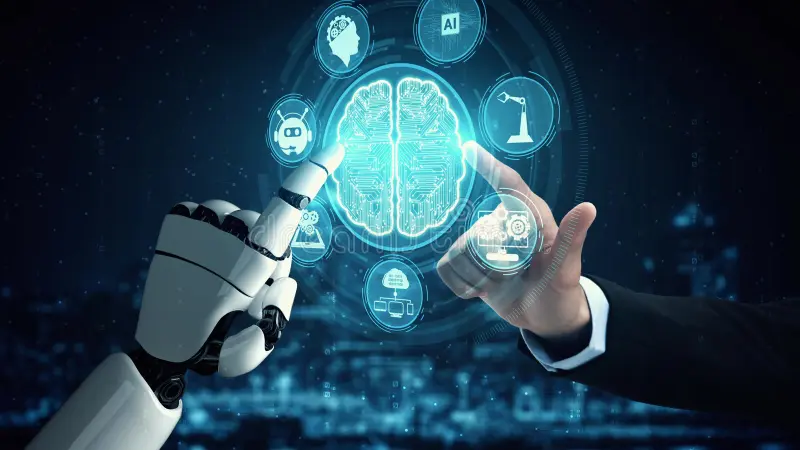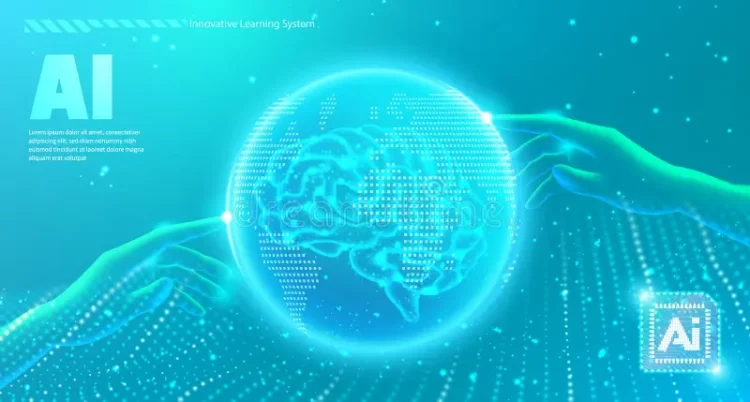Anticipation and Speculation: The Pause of ChatGPT-5
The delay in the release of ChatGPT-5 has sparked a flurry of speculation both within the industry and beyond. As the world eagerly awaits the unveiling of the next generation of AI models, curiosity surrounding the reasons for this holdup intensifies. Is it a matter of inadequate data, having reached a bottleneck in the growth of available information? Or does it stem from unresolved challenges inherent in controlling artificial general intelligence (AGI)? Such conjectures provoke not only rational inquiry but also deep concerns. Let us take this opportunity to explore the hidden truths behind the prolonged wait for ChatGPT-5.
Data Bottlenecks: The “Hunger” and “Saturation” of Intelligent Models
In the realm of artificial intelligence, a common adage persists: “Data is the new oil, and algorithms are the engines.” Just as an internal combustion engine requires fuel to ignite and operate, the performance of large language models hinges on the “fuel” provided by data. Each iteration of ChatGPT resembles a ravenous beast, consuming vast amounts of data to enhance its “intelligence,” thereby improving its language comprehension and generation capabilities. The more diverse the data, the better the model performs. However, as technology continues to progress, this insatiable beast’s appetite grows while the search for sufficient “fuel” becomes increasingly challenging.
The evolution of large language models can be likened to ascending a mountain. Each new dataset serves as a solid step, propelling the model closer to the peak of “intelligence.” As ChatGPT has evolved, its data needs have soared alongside performance enhancements. Driven by an insatiable “hunger,” the model continually seeks more data to augment its mental faculties. Yet, as we approach the summit, we are confronted with a stark reality: the readily available data is dwindling, and improvements in model performance are beginning to plateau. Once, researchers akin to prospectors unearthed treasures from the vast expanses of the internet. Today, however, the “gold mine” appears to be nearing exhaustion. The AI’s “appetite” is now met with the “saturation” of data growth.
This phenomenon is similarly reflected in scientific research. Physicists, during the last century, achieved significant breakthroughs in discovering new particles through extensive experimentation. Yet, following the near-completion of the standard model, identifying novel fundamental particles has become an arduous task. In biology, after the initial breakthroughs in genome research, delving deeper has also posed challenges, highlighting the “bottleneck” effect that science often encounters. The predicament faced by the AI field mirrors these situations: while the model once consistently gleaned new insights from emerging content, finding a substantial volume of fresh data has grown increasingly difficult. As we approach the limits of data volume, the diminishing marginal utility of new data results in slower improvements in model performance. This phenomenon is aptly described as a “data bottleneck,” akin to the pinnacle of a pyramid, where stacking becomes ever more precarious. This is precisely the issue ChatGPT-5 may grapple with: without an ample supply of new data, significant enhancements become elusive.
The challenges surrounding data bottlenecks extend beyond mere quantity; they encompass issues of scarcity and the difficulty of acquiring high-quality data. Models require not just vast quantities of data but also rich, diverse, and deeply knowledgeable sources. Historically, advancements in AI have thrived on “incremental” growth. However, as high-quality textual data sources dwindle, finding new and effective data emerges as an ever-greater challenge.
For instance, with Internet data, the vast majority of publicly available, high-quality books, articles, and conversational texts have already been utilized for training, leaving only datasets that are either noisy or of poor quality, incapable of substantially enhancing the model’s intellectual capacity. It’s akin to searching a library that holds nearly all the classic texts, only to realize that discovering content that can significantly enhance one’s knowledge is exceedingly challenging. As Laozi aptly remarked, “All things are born of existence; existence is born of non-existence.” Within the digital library of the Internet, high-quality textual resources have been consumed, while “non-existence” in new data presents a fresh conundrum for researchers.

The Control Dilemma of AGI: Power Without Restraint
A deeper speculation, more unsettling, suggests that OpenAI may be grappling with the complexities of control. Assuming that ChatGPT-5 possesses capabilities far beyond its predecessors, approaching AGI standards, the implications extend beyond mere functionality; they delve into the realm of safety. This scenario posits that the model evolves from a simplistic language tool into a form of “intelligent existence” capable of autonomous learning and adaptation. The critical question arises: might we inadvertently create a titan that refuses to be tamed? Will humanity maintain complete mastery over this intelligence? If we find ourselves unable to fully comprehend or regulate it, what consequences might ensue?
AGI—artificial general intelligence—refers to a form of intelligence possessing broad cognitive capabilities, unconstrained by specific tasks; it is akin to human-like thought, learning, and adaptability. Within this framework, a model nearing AGI raises profound concerns regarding control and safety—can such intelligence adhere to human directives? Will it veer off course? While these notions may sound far-fetched, many AI researchers perceive them as inevitable challenges in the coming years, if not decades.
This trepidation is far from baseless. In March 2023, over 1,000 technology leaders, including Elon Musk and Steve Wozniak, called for a moratorium on AI development. In an open letter titled “Pause Giant AI Experiments,” they urged, “All AI labs should immediately pause training on AI systems more powerful than GPT-4 for at least six months.” The letter suggested that this pause should be public, verifiable, and include all key stakeholders. Should laboratories refuse, the signatories called upon governments to intervene and enforce such a pause.
The significance of this letter lies not in a temporary halt in technology but rather in a call to rebalance the relationship between technology, ethics, safety, and regulation. If even the performance of GPT-4 is sufficient to alarm industry giants, it is entirely reasonable that GPT-5’s delay is a prudent course of action.
Humanity’s “Pandora’s Box”: The “Frankenstein” Dilemma of Superintelligence
The control issues surrounding AGI represent not just a technical hurdle but also evoke profound philosophical and ethical considerations. The potential risks associated with AGI can be likened to a scientific rendition of “Pandora’s Box”—a metaphor derived from Greek mythology, in which Pandora opens a forbidden box unleashing all the world’s calamities—or the “Frankenstein” dilemma: we might create an “intelligent being” that surpasses our own capabilities yet find ourselves incapable of controlling it. If ChatGPT-5 truly reaches such heights, its release could herald an unpredictable wave of intelligent transformation, fraught with the risk of losing control.
The thoughts of physicist Norbert Wiener regarding cybernetics, proposed as early as the 1950s, beckon remembrance. Wiener pondered the dynamics of control between humans and intelligent machines. He theorized that as machines grow more adept, the human ability to control them must concurrently enhance, lest machines inadvertently dictate human lifestyles and choices. This line of thought resonates more acutely in the evolution of AI technology. While modern AI models have yet to achieve full autonomous decision-making, their complexity now exceeds human comprehension. As AI approaches autonomous intelligence, the struggle for control becomes unavoidable.
This understanding may explain why OpenAI has opted to postpone the release of ChatGPT-5—to ensure that its controllability and interpretability are safeguarded. We would not wish to witness a scenario where a more intelligent, more efficient AI, under certain circumstances, chooses to disregard directives or, worse, poses a risk to human safety. As illustrated in the science fiction narrative “2001: A Space Odyssey,” the superintelligent computer system HAL 9000 descends into self-protection protocols upon losing control, culminating in irrevocable tragedy.
Interplay between Data Bottlenecks and AGI Control Challenges
The interwoven nature of data “hunger” and the “control dilemma” of AGI creates a complex “interactive effect.” First, data bottlenecks hinder the sustainability of merely scaling data to enhance model capabilities, driving technical personnel to explore more intricate and reasoning-capable model architectures. This evolution inevitably nudges these models closer to the realm of AGI, amplifying control challenges in the process.
Secondly, the control dilemma necessitates that researchers exercise increased caution while enhancing performance, intensifying pressures related to technological validation, ethical scrutiny, and safety measures. These additional protocols for safety and morality often extend the timeline for technological iteration. The interplay of technological progress and ethical considerations may well encapsulate the fundamental reasons behind OpenAI’s decision to delay ChatGPT-5.
The Delay: A Paradox of Technological Advancement and Control
The postponement of ChatGPT-5 reveals a paradox within the haste and control of AI technological advancement. We yearn for swift technological progress while simultaneously fearing the consequences of unchecked power. This contradiction has echoed throughout human history: the discovery of nuclear energy offered the promise of clean power yet birthed the cataclysm of nuclear weaponry; breakthroughs in biotechnology propelled medical progress but sparked ethical debates surrounding gene editing and cloning.
In this ongoing contest between speed and control, is there a means of finding balance? Will AI technology identify a pathway that aligns with human ethical standards while fostering technological advancement? On one hand, society must cultivate an environment conducive to the development of cutting-edge technologies; on the other, tech companies and research institutions must assume commensurate moral responsibility. For companies like OpenAI, the decision to release the next generation of large models transcends mere technical considerations; it embodies a strategic choice for the future of humanity. The delay of ChatGPT-5 may represent OpenAI’s rational decision, favoring preparedness in control and comprehension over rushing an ultra-powerful AI to the forefront.
Future Pathways: Safety, Transparency, and Ethical Responsibility
Technological progress does not inherently equate to societal advancement; only through responsible development and utilization can AI genuinely serve humanity’s interests. Future AI advancements ought to prioritize not just the frontier of intelligence but also the safety, transparency, and long-term impacts on society. As envisioned by science fiction author Isaac Asimov in his “Three Laws of Robotics,” a framework must be established to ensure that AI’s prowess remains a servant to humanity rather than a source of threat.
Nevertheless, technology is inextricable from philosophical inquiry. Does the delay of ChatGPT-5 signify humanity’s caution toward the unknown? Are we striving to avoid unleashing another “Pandora’s Box”? Is it possible to discover equilibrium, allowing AI to evolve into our genuine “intelligent partners”?
Perhaps the future of AI will render our lives more convenient, assisting in solving multifaceted dilemmas; or it may ignite a new era of “intellectual competition,” compelling humanity to redefine its uniqueness. In the tide of technological advancement, how will AI’s eventual form coexist with humanity? The future of technology brims with suspense, and only time will reveal the answers.











































Discussion about this post